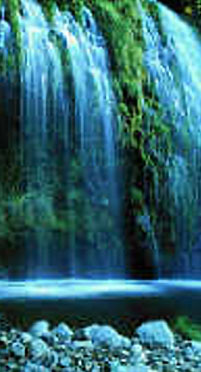|
|
|
 |
|
|

(970)-523-5400 |
|
What are Cryptosporidium and Giardia?
Giardia (G. lambia) and Cryptospordium (C. parvum) are waterborne protozoan cysts that may be present in some water supplies. When ingested, the cyst-shell is shed and the organisms infect the intestines, causing illnesses. Because Giardia and Cryptosporidium cysts are resistant traditional disinfection agents such as chlorine and ultraviolet light, the organisms are often not removed by municipal water treatment. What are the problems associated with Cryptosporidium and Giardia? Ingestion of water infected with cryptosporidium cysts causes Cryptosporidiosis, a disease characterized by symptoms such as diarrhea, nausea, vomiting, abdominal cramps, headaches, and low-grade fevers. Symptoms may last from one to two weeks before the body’s immune system stops the infection. Young children, older adults and those with weakened immune systems face greater risk of serious illness and possible death resulting from infection. Cryptosporidiosis was brought to national attention in 1990 when the city of Milwaukee’s water supply became contaminated with Cryptosporidium cysts, resulting in 400,000 cases of the disease and 100 related deaths. Ingestion of water infected with Giardia cysts results in Giardiasis (commonly know as “beaver fever”), one of the most common causes of diarrhea in North America. Infection is more common among children and may last for up to three weeks. Giardiasis may be effectively treated with antibiotics. How do I know if my water is infected? Surface water supply sources (lakes, rivers, and reservoirs) are at a greater risk for Cryptosporidium and Giardia cyst contamination than well water supplies because the cysts are often spread through animal feces. Call your local water company and ask where your water comes from, whether your area has had any recent problems with Cryptosporidium and Giardia contamination, and how efficient your municipal filtration is. Cryptosporidium and Giardia cysts are often difficult to detect and remove at the municipal level. What can be done to remove Cryptosporidium and Giardia cysts? Carbon block filters will remove Cryptosporidium and Giardia cysts. Carbon block filters may be installed in an under-sink housing for use with a separate faucet, in a countertop fill system, or as part of a chemical contaminant filtration system. So.... Do you know what's in your water?
All rights reserved. Please direct all web site comments to webmaster@kdwater.com ^ back to top ^
|